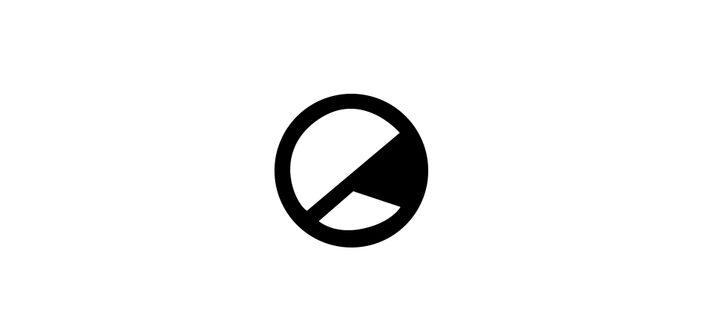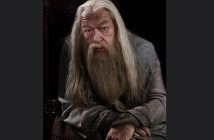Recently James Corden has faced backlash for his portrayal of a camp gay man in the Netflix adaption of The Prom. A performance which, even more controversially, earned him a Golden Globe nomination. Social media was quick to condemn the nomination, calling Corden’s performance an offensive stereotype and arguing that the role should have been filled by a gay actor instead. This debate about the casting of queer characters is not new but has gained more traction in recent years with many calling for straight actors to turn down queer roles. You might be thinking, but isn’t the very nature of acting to portray a character, a person outside of your own experience and self? While on the surface, this is a fair point, it fails to consider the wider history and realities of the media industry’s connection to the queer community.
It’s important to note that it is still not always easy to be queer in the film industry. Rupert Everett has spoken about how he feels his coming out in 2009 damaged his career, stating “Honestly, I would not advise any actor necessarily, if he was really thinking of his career, to come out.” Similarly, Evan Rachel Wood has spoken about how, before coming out as bisexual, she was told many times that it would damage her career by making her less desirable to a male audience. Queer actors are often still overlooked for heterosexual romantic leads because of their sexuality. This does not work both ways, however, with actors like Hugh Grant and Colin Firth being famous heartthrobs in heterosexual romances stories, whilst also ‘playing gay’ multiple times across their careers.
Broadway star – and a gay man himself – Andrew Rannells spoke out about the controversy around The Prom, defending Ryan Murphy’s choice by paralleling Corden’s casting to his own. Rannells plays the apparently heterosexual Trent (Trent’s sexuality nothing more than ambiguous at best) and spoke of how rare it is for him to book heterosexual roles on television and film. I think, perhaps without meaning to, Rannells highlighted the very issue here. Queer actors, especially ones that are more camp or butch or non-cis are very rarely given the diversity of casting opportunities of their cis-het peers. Meanwhile, cis-het actors are showered with awards for ‘playing gay’ – which can end up relying on stereotypes. This is especially prevalent in Corden’s performance.
Russell T Davies, creator of Queer as Folk and most recently It’s A Sin, highlighted stereotyping as a concern in a recent Radio Times interview, stating that to hire a straight actor to play gay is not to play a person, but to play a stereotype. He also makes clear his concern for equity – if queer actors are disproportionally overlooked for cis-het roles, while cis-het actors are hired to play queer, there will be a drastic disparity in queer actors breaking the industry. Davies also received some criticism for describing queer actors as having more authenticity in the role. Yet, there is a point to be made for the queer community being at the forefront of telling its own past.
This is not to say that cis-het actors do not have the ability to play queer characters well; some of my favourite queer characters are played by straight people! There are plenty of actors who did not play a caricature, actors who not only played the role but actively pushed against outside pressure in order for their characters to be taken seriously by a production or audience who trivialised them for their identity. This is seen in Heath Ledger’s resistance against the homophobic jokes made around Brokeback Mountain or Naya Rivera’s tireless fight for Santana and Brittany to be taken seriously by the writers of Glee. Straight actors’ performance is not inherently poor or problematic because they are straight – it is more complicated than individual performance. There must be an acknowledgement of the disparity between the way we treat straight actors compared to their queer counterparts. Try and think of an Oscar-winning or nominated queer performance: Call Me By Your Name; The Imitation Game; Brokeback Mountain; Moonlight; The Danish Girl; Carol; The Favourite – You know what none of them have? Openly queer lead actors.
An understandable argument against barring ‘straight’ actors from queer roles is the idea that closeted actors may have to ‘out’ themselves in order to take a part. There is precedent for this happening, as seen with Jameela Jamil feeling pressured to come out after taking a role on a queer TV programme in 2020. There are also examples of actors in queer roles coming out later in production such as Keiynan Lonsdale in Love, Simon, and even Kate Moenning wasn’t out when she first embodied the infamous Shane on The L Word. While this does stand as an important point when used to totally dismiss the argument of queer-focused casting it neglects to once again consider this imbalance in opportunity. No one should have to feel pressured to come out but until they do a closeted actor can be assumed to, for the most part, still benefit from the opportunities of a ‘straight’ actor. With few exceptions, they are not passed up for roles, queer or otherwise, because of their sexuality. Whereas the same is not always true once they do come out.
We cannot discuss queer casting without acknowledging that the treatment of queer actors and characters and its impacts is not equally felt across all parts of the LGBTQ+ community. The casting of cis actors in trans roles especially can be actively harmful. This topic is covered in the documentary Disclosure, where trans actress and writer Jen Richards explains how cis male actors playing trans women on screen feeds a dangerous false narrative that trans women are men ‘in disguise’. Media has a huge effect on how we perceive our own world, especially for experiences not like our own, and so if we teach people to associate trans women with Eddie Redmayne and Jared Leto, it is easy to see how this can not only invalidate trans identities but lead directly to transphobic violence, especially in the hostile media climate we see today. While trans characters are still rarely represented on screen when they are, and by cis actors, they are flooded with critical acclaim. Once again, this is not to necessarily say these performances were poorly acted but that we must acknowledge the wider picture of how disproportionately trans actors are treated – extremely rarely being cast in cis roles and being overlooked for trans roles in favour of allowing a cis actor to ‘show their range,’ as well as the social context in which these depictions can sometimes do more harm to the community in the real world.
Due to the disproportion of queer characters on screen compared to cis-het ones, there is bound to be more pressure on the existing queer roles to represent an underrepresented community both to those within that community and outside of it. The issues around representation and casting can of course not only be solved in front of the camera but behind it as well. The crux of the issue is ultimately that, just like any other minority group, representation is best done with a diverse writers’ room and crew as well as cast; but this diversity can only come about if we make room for it, and that might just mean next time you don’t cast Tucci, or even Blanchett – and certainly not Corden.
So next award season, I encourage you to just wonder why it is we applaud those for whom queer is a role, not an identity so? What is it about their performance that is so impressive? To see them act so outside the norm; so alien, so exotic, so queer… everyone loves to watch the freak show, but does that mean they love the freak?




